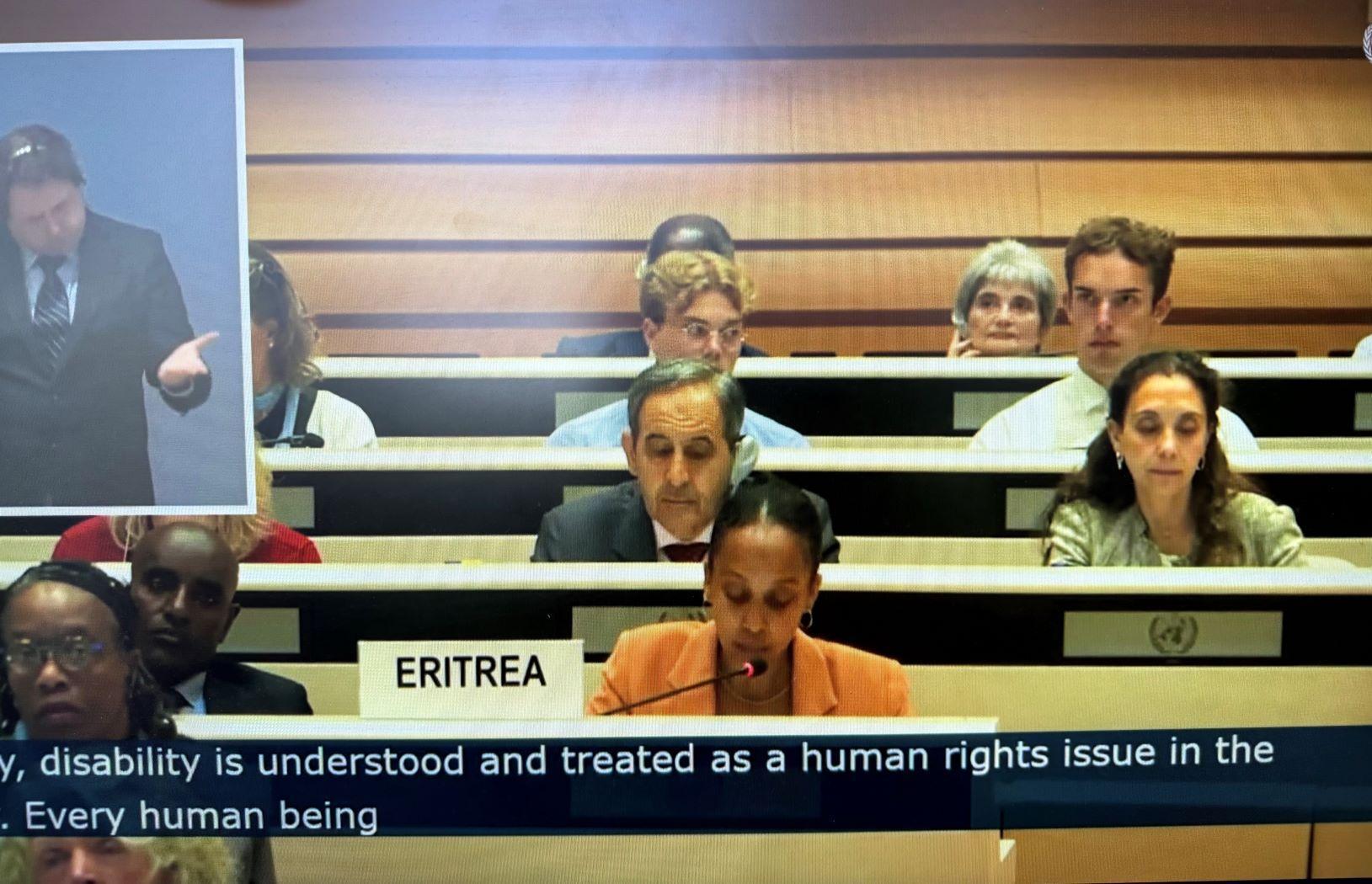Africa-Press – Eritrea. Madam Chair, Distinguished Members of the Committee,
I would like to begin by sincerely thanking the Secretariat of the Committee on the Rights of Persons with Disabilities (CRPD) for inviting Eritrea to deliver remarks during the opening segment of the 33rd session of the Committee. It is a distinct honour, and the Government of the State of Eritrea expresses its appreciation.
Questions may have arisen as to why Eritrea took time to ratify the Convention on the Rights of Persons with Disabilities, despite the significant work undertaken on the ground. This moment provides a meaningful opportunity to shed light on the context and considerations behind that timeline.
Eritrea’s engagement with the issue of disability is not new. Since the days of the struggle for independence, it has acquired valuable experience and insights regarding persons with disabilities (PWDs). The Eritrean People’s Liberation Front (EPLF) recognized the significance of disability within society and was among the first to advocate for the equal rights and full inclusion of PWDs. The EPLF, beyond mere expressions of solidarity, implemented concrete measures to ensure the active involvement of persons with Disabilities in the liberation movement, viewing them not as passive recipients of care, but as vital contributors to national progress and agents of transformative change.
Today, disability is understood and treated as a human rights issue in the country. Every human being is entitled to live in dignity and to enjoy equal access to opportunities and services. The Government of the State of Eritrea believes that the challenges faced by persons with disabilities are best addressed through respect for individual rights and the equitable distribution of opportunities. Eritrea’s national approach is firmly grounded in its cultural values and rooted in principles of social justice, inclusivity, equity, self-reliance, and human dignity.
Across all regions of the country, efforts are underway to ensure that social services are accessible and inclusive for citizens with disabilities. Eritrea maintains that the responsibility of building inclusive societies, where persons with disabilities can thrive, contribute, and lead meaningful lives, is a collective one. This responsibility does not rest solely with the government or specific institutions, but is shared by every citizen and every sector of society.
Distinguished Members of the Committee,
The Government of Eritrea has consistently demonstrated its commitment to the spirit and objectives of the Convention. Its participation in relevant discussions has always reflected our sincere dedication to advancing the rights enshrined in international human rights instruments. As a young nation, only 34 years since independence, Eritrea has had to navigate multiple and often simultaneous priorities: nation-building, institutional reconstruction, and development, all under complex and evolving circumstances. Yet, throughout this journey, Eritrea has remained focused on ensuring that no citizen is left behind, including those with disabilities.
It is important to underscore that the act of signing or not signing a treaty does not, in and of itself, encapsulate the full extent of a country’s engagement or commitment. In Eritrea’s case, substantial groundwork has long been underway, work that may not always be captured in formal international reporting but is nonetheless critical and ongoing. This nuance must be acknowledged. While reporting obligations are indeed important, they should be approached not as mere formalities, but as sincere, reflective exercises rooted in actual lived realities.
Eritrea has made deliberate and sustained efforts to protect the rights and well-being of all its citizens, including persons with disabilities. At the same time, the country recognizes that ratifying international instruments entails a range of specific responsibilities, particularly regarding structured and periodic reporting. These responsibilities require sustained institutional capacity, technical expertise, and human resources. For developing nations still establishing foundational governance systems, such obligations can present practical challenges. It is essential that this reality be acknowledged—not as an excuse, but as context—while reaffirming the country’s determination to meet these responsibilities in a serious, measured, and effective manner.
Ladies and Gentlemen,
Those who will examine Eritrea’s trajectory with respect to the Convention will find a candid and transparent account of its progress, along with the recognition of the challenges that remain. Eritrea is encouraged by the distance it has travelled, and it is from this point of grounded confidence and demonstrated progress that the country now moves to the next phase, formally ratifying the Convention and assuming its reporting obligations.
This decision is not simply about meeting an international expectation; it reflects a genuine commitment to share national experiences, document progress, and contribute meaningfully to the global discourse. Eritrea also sees this as an opportunity to benefit from constructive feedback, strengthen its national systems, and continue its efforts in ways that are both impactful and responsive to its own realities. The country approaches this new phase with openness, humility, and a firm conviction in the power of collaboration and mutual learning.
We thank you once again for this opportunity.
(Speech delivered by: Nadja Micael Senior Human Rights Officr Permanent Mission of Eritrea to the United Nations in Genève)
For More News And Analysis About Eritrea Follow Africa-Press







